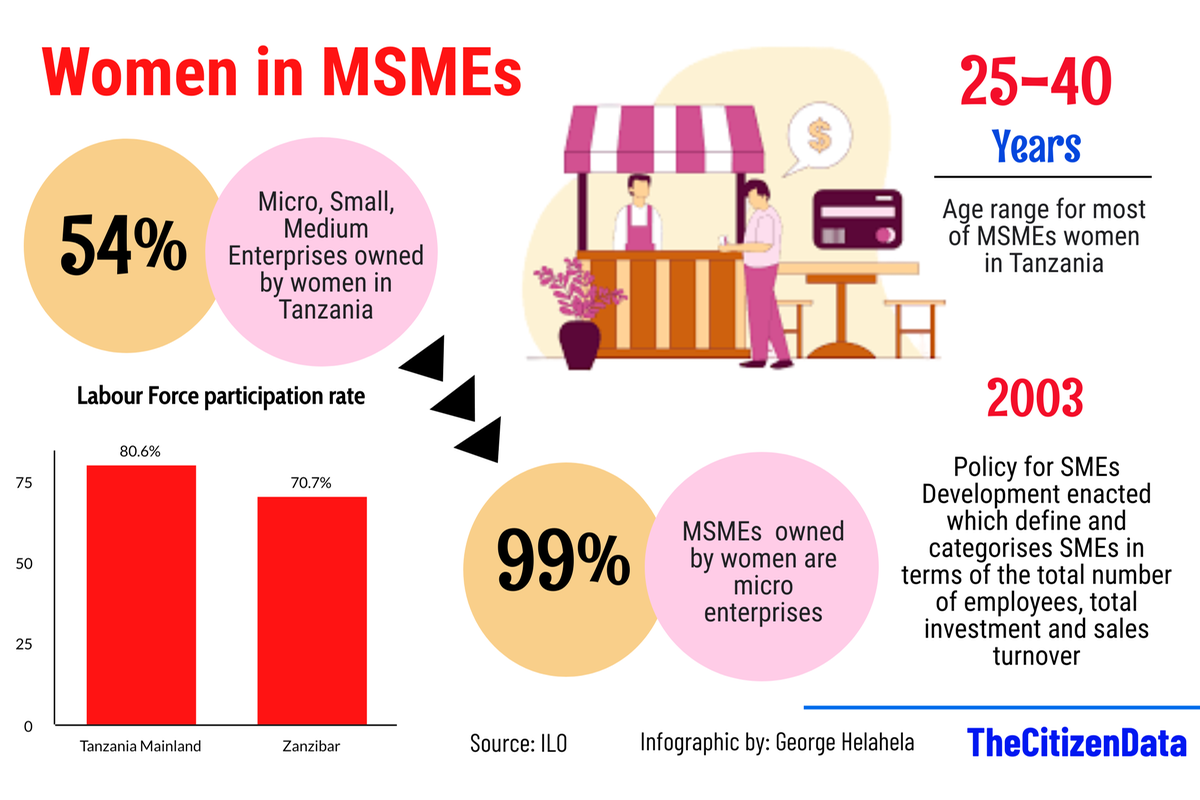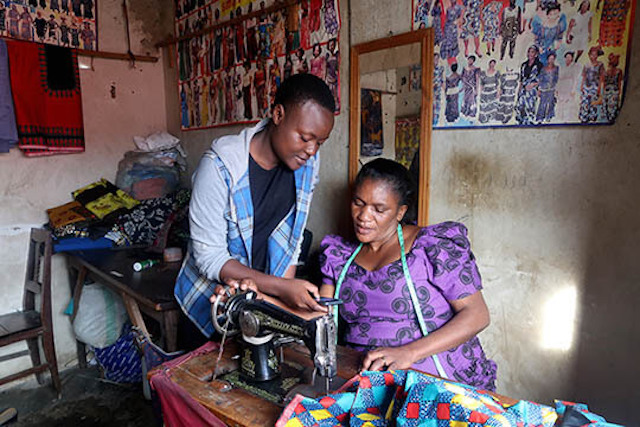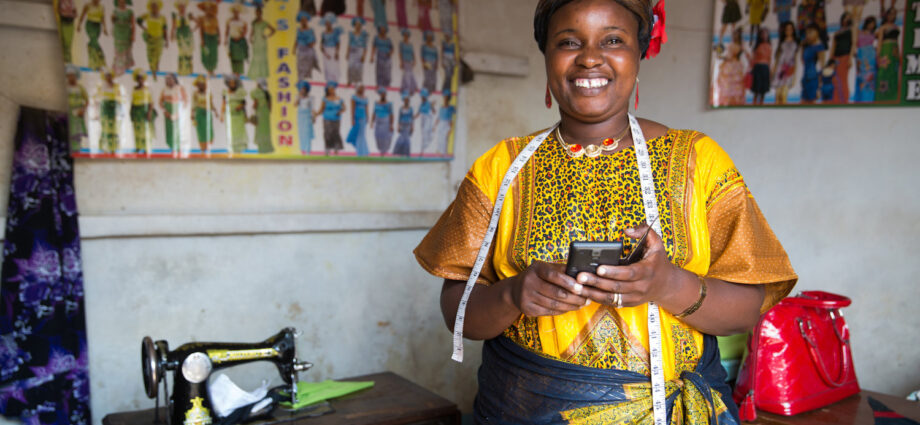Tanzania Women & entrepreneurship have special connection

At least 54 per cent of all micro, small and medium enterprises are owned by women.
More could have joined, but cultural bias embedded in the legal regime and institutions have not only made it difficult for more women to join but also for the existing women-owned SMEs to access finance, markets and technical services.
The unproductive cultural norms might have helped to push some women into entrepreneurship after being denied access to education as and discrimination in workplaces.
Studies show that the majority of women entrepreneurs have less education than their male counterparts and are more clustered in the informal, micro-enterprises category.

A survey conducted by the International Labour Organisation (ILO) in 2014 shows that 99 per cent of the 1.726 million enterprises owned by women in Tanzania are micro enterprises. This is, partly, because of legal and cultural complications in land ownership by women.
Reproductive and family responsibilities is also a challenge. There are more women entrepreneurs in the ripe reproductive age of 25 to 40 years, according to various studies.
This obliges them to divide their time and attention between business and family in a manner that men do not.
The government, the civil society, financial institutions, business associations and international organisations have done a tremendous job in helping to uplift women entrepreneurs.
This has improved their access to finance and technical support. In July 2022, for example, it was announced that the African Development Bank and the African Guarantee Fund have made $250 million (Sh500 billion) available to Tanzanian financial institutions for loaning to women.
The government has also created special funds for women and the youth to ease their access to financial capital. One of these funds is the National Entrepreneurship Development Fund (NEDF) which issued loans worth 900 million to about six million women and youth entrepreneurs in the 2021/22 financial year.
More beneficiaries (3,737,581) were women as compared to 2,195,087 young men.
However noble these efforts to help women entrepreneurs are and despite the good results there is still a big section of economically active women left out of the picture.
These are the women engaged in farm activities. They are mainly based in rural areas. Issues start with the fact that farm activities are excluded in the SMEs category by the Tanzania SMEs Development Policy of 2003.
This put more women than men at a disadvantage because the National Bureau of Statistics indicates that 65 per cent of farmers are women.
Again 70 per cent of the total workforce engaged in the food production chain are women.
They are not categorised as entrepreneurs and do not, therefore, enjoy the support that reserved for women owned SMEs.
As a result they face challenges such as lack of access to credit and skills development opportunities, according to the NBS. Also chances of formalizing their activities are small because smallholding in Tanzania is not considered as a business activity.
But this will have to change. Days of considering farming as a primitive, non-commercial activity are over.
Foodcrops are a commodity sellable in the market and involves monetary exchange the same as in other businesses. Agroprocessing, which is admitted into the category of SMEs is closely linked to agriculture.
Moreover the current efforts to ‘commercialise’ food crops farming through guaranteeing farmers access to markets inside and outside the country calls for the rethinking of traditional smallholding as a commercial activity and a potential SME.
The ongoing review of the SMEs policy should tackle the issue.
The best way to do this to draw distinct groups of SMEs, separating the industrial based SMEs from the farm based ones. Leaving farm based activities entirely out of the SMEs picture is counterproductive. It condemns Tanzania to perpetual poverty and food insecurity.
If 65 per cent of all farmers and 54 per cent of all entrepreneurs in Tanzania are women; and as breadwinners in half of the households are women – with 33 per cent of all the households being headed by women: then it follows that the path towards boosting food security and ending income poverty is through women.
Formalising their farm activities through the SMEs framework can help a lot. It would have back-and-forth benefits in terms of increased farm productivity because, according to the NBS, women farms have lower yields than men’s. Compared to men, more women cannot afford to recruit farm workers. Formalisation can also enhance value addition of agricultural produce.
Hundreds, if not thousands, of studies have, for years, been commissioned to study poverty. Think-Tanks have also been established for that purpose. And yet as we continue to study poverty we can already start to ‘cut it down to size’ by empowering women.
For that to happen there must be strong political will right at the top of government decision making. This should be accompanied by a well coordinated educational and advocacy campaign that showcases the multitude of success stories by women entrepreneurs and farmers and which, at the same time, challenges the societal and cultural norms that deny women a place in Tanzania’s economic table.
Share this news
This Year’s Most Read News Stories

Zanzibar introduces $44 insurance fee for visitors
Visitors travelling to Zanzibar will now have to pay an insurance fee of $44 (about Sh118,360) with effect from September 1.Continue Reading

How diplomatic intervention kept Air France, KLM in Zanzibar
It has, however, emerged, that the Netherland and France sought a diplomatic solution to a standoff at the Abeid Aman Karume International Airport, warning that it could disrupt Air France and KLM flights into Zanzibar, and later Dar es Salaam.Continue Reading

British Investor’s $1.6 billion real estate project in Zanzibar lies in limbo
The revocation of British developer Pennyroyal’s leasehold for the construction of Blue Amber Resort by the Revolutionary Government of Zanzibar has sent shock waves in the nascent property market on the Isles.Continue Reading












